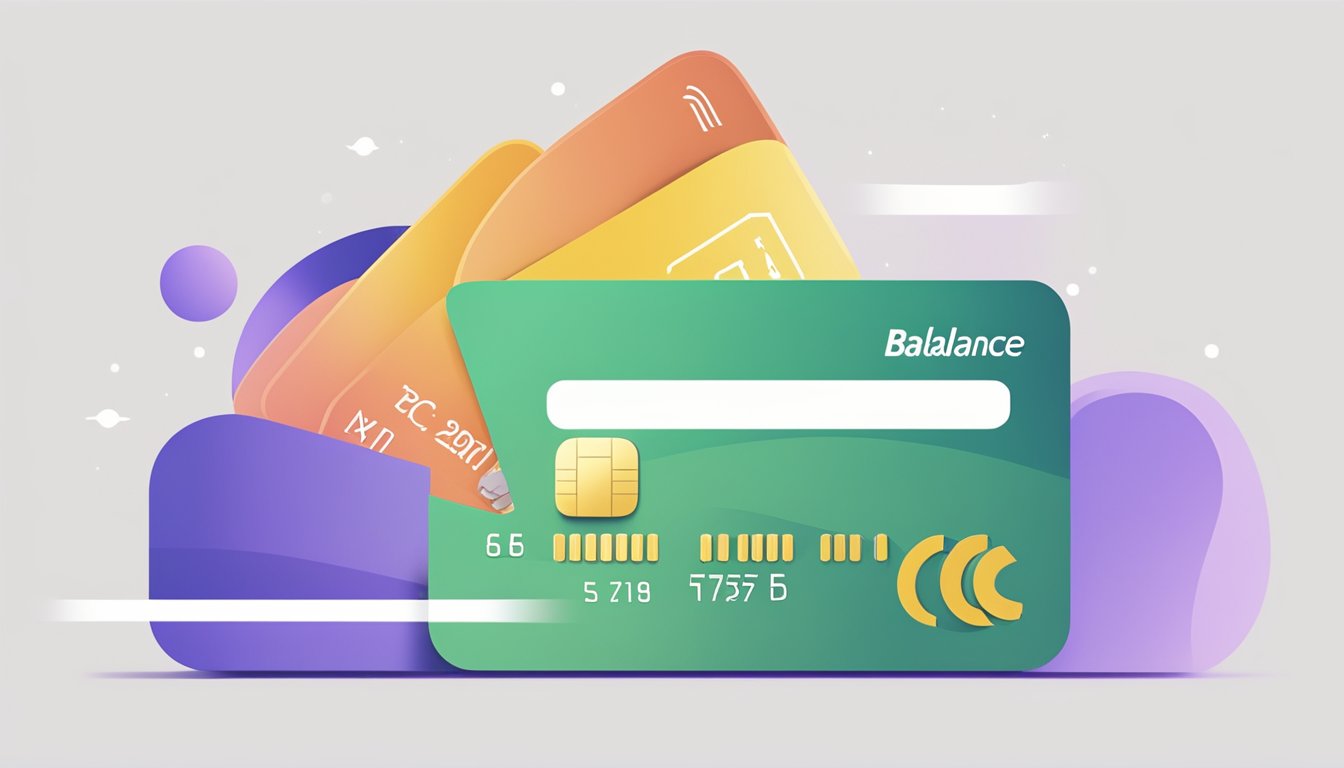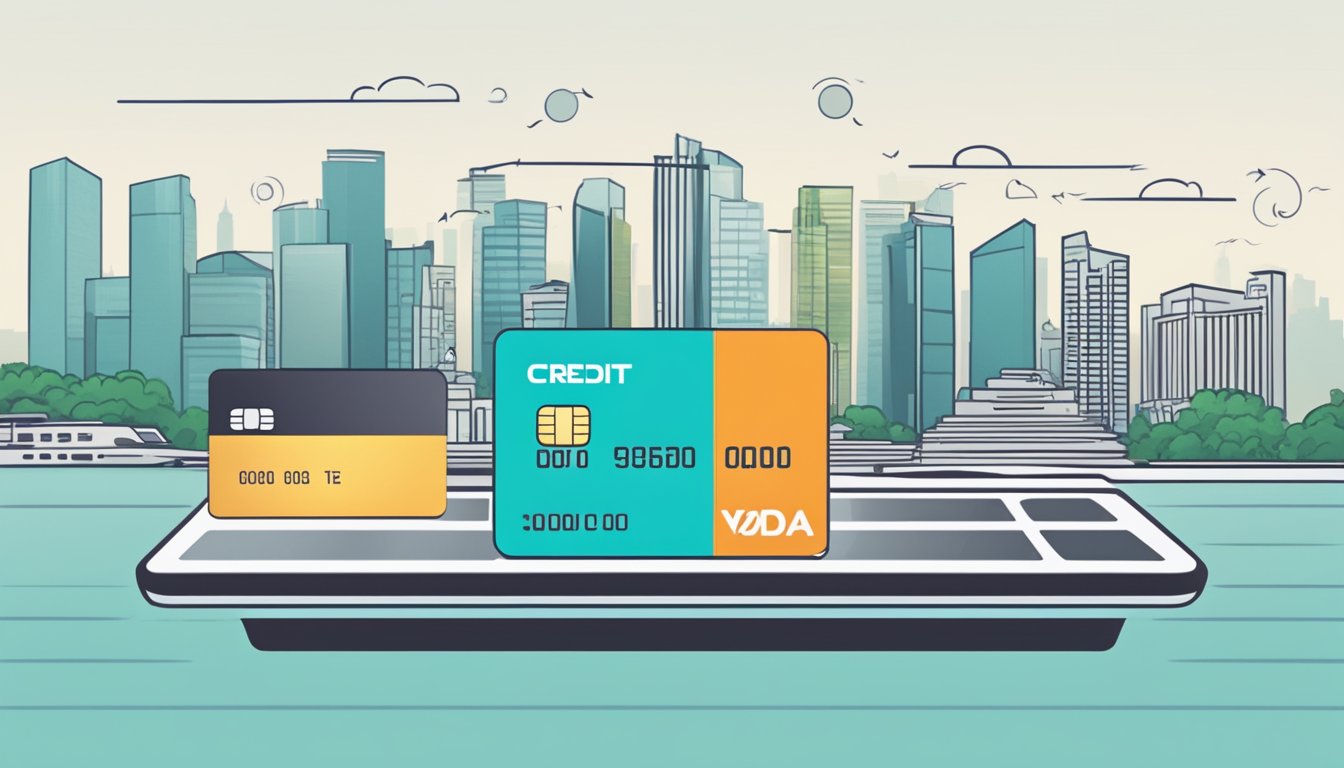If you’re considering a balance transfer in Singapore, you may be wondering how it will affect your credit score. A balance transfer involves moving debt from one credit card to another with a lower interest rate, which can help you save money on interest charges. However, it’s natural to be concerned about the impact on your credit score, especially if you’re planning to apply for a loan or credit card in the near future.

Fortunately, a balance transfer itself does not negatively affect your credit score. In fact, if you use a balance transfer to consolidate high-interest debt and pay it off more quickly, it could actually improve your credit score over time. However, there are some factors to consider when it comes to how a balance transfer could impact your creditworthiness, including the amount of credit you’re applying for and your repayment history.
Overall, understanding how balance transfers work and how they can impact your credit score is an important part of managing your finances in Singapore. By taking the time to learn about the benefits and risks of balance transfers, you can make informed decisions about your debt management strategy and work towards a stronger financial future.
Key Takeaways
- Balance transfers themselves do not negatively impact your credit score in Singapore.
- However, factors such as the amount of credit you’re applying for and your repayment history can impact your creditworthiness.
- Understanding the benefits and risks of balance transfers can help you make informed decisions about your debt management strategy.
Understanding Balance Transfers in Singapore

What Is a Balance Transfer?
If you’re struggling to pay off your credit card debt due to high-interest rates, a balance transfer could be a great option for you. A balance transfer is a process of transferring your existing credit card balance or loan to another credit card or loan with a lower interest rate. In Singapore, most banks offer balance transfer services to their customers.
How Do Balance Transfers Work?
The main benefit of a balance transfer is that it helps you save money on interest charges and pay off your debt faster. When you apply for a balance transfer, you’ll be given a new credit card or loan with a 0% interest rate for a certain period of time. This interest-free period is usually between 6 to 12 months, depending on the bank.
During this interest-free period, you won’t have to pay any interest on your outstanding balance. This means that all of your payments will go towards paying off your principal balance. However, you’ll still need to make your minimum monthly payments to avoid any late fees or penalties.
Key Features of Balance Transfers
Here are some key features of balance transfers that you should be aware of:
- 0% interest rate: During the interest-free period, you won’t have to pay any interest on your outstanding balance.
- Processing fee: Most banks charge a processing fee for balance transfers. This fee is usually a percentage of the amount that you’re transferring.
- Credit score: Your credit score will be taken into consideration when you apply for a balance transfer. If you have a good credit score, you’re more likely to be approved for a balance transfer.
- Credit limit: Your credit limit will depend on your credit score and income. You may not be able to transfer your entire outstanding balance if your credit limit is lower than your outstanding balance.
- Late payment fees: If you miss a payment or make a late payment, you may be charged a late payment fee. This fee can be quite high, so it’s important to make your payments on time.
Overall, a balance transfer can be a great way to save money on interest charges and pay off your debt faster. However, it’s important to read the terms and conditions carefully and make your payments on time to avoid any fees or penalties.
Impact on Your Credit Score

When you transfer your balance to a new credit card, it can have an impact on your credit score. Understanding how balance transfers affect your credit score is crucial before you decide to go ahead with one. Here are some ways in which balance transfers can affect your credit score in Singapore.
Credit Utilisation and Balance Transfers
Credit utilisation is the amount of credit you use compared to the amount of credit you have available. If you transfer a balance to a new credit card, it can affect your credit utilisation rate. If you transfer a high balance to a new credit card, it can increase your credit utilisation rate, which can negatively impact your credit score. It is important to keep your credit utilisation rate below 30% to maintain a good credit score.
Inquiries and New Accounts
When you apply for a new credit card to transfer your balance, the credit card issuer will perform a credit check. This credit check will show up on your credit report as an inquiry. Too many inquiries on your credit report can negatively impact your credit score. Additionally, opening a new credit card account can also negatively impact your credit score, especially if you have a short credit history.
Repayment Behaviour
Your repayment behaviour is one of the most important factors that determine your credit score. When you transfer your balance to a new credit card, it is important to make your payments on time. Late payments can negatively impact your credit score and make it harder for you to get approved for credit in the future. It is important to have a repayment plan in place before you transfer your balance to a new credit card.
In conclusion, balance transfers can have an impact on your credit score in Singapore. It is important to understand how balance transfers affect your credit score before you decide to go ahead with one. By keeping your credit utilisation rate low, minimizing inquiries on your credit report, and making your payments on time, you can minimize the negative impact of a balance transfer on your credit score.
Financial Advantages and Risks

When considering a balance transfer in Singapore, it is important to weigh the potential financial advantages and risks. Here are some key factors to consider:
Potential Savings on Interest Payments
One of the main advantages of a balance transfer is the potential to save on interest payments. By transferring your existing credit card debt to a new card with a lower interest rate, you could significantly reduce the amount of interest you pay each month. This could help you pay off your debt faster and save you money in the long run.
For example, let’s say you have $5,000 of credit card debt with an interest rate of 24% per annum. If you were to transfer this balance to a new card with a 0% introductory APR for 12 months and a 3% balance transfer fee, you could save up to $1,200 in interest payments over the course of the year.
Risks and Considerations
While a balance transfer can be a useful tool for managing debt, there are also some risks and considerations to keep in mind. These include:
-
Balance transfer fees: Many balance transfer cards charge a fee for transferring your balance, typically around 3% of the total amount transferred. Make sure you factor this into your calculations when weighing the potential savings.
-
Hard inquiries: Applying for a new credit card can result in a hard inquiry on your credit report, which can temporarily lower your credit score. Make sure you understand the impact of this before applying for a balance transfer card.
-
APR after introductory period: If you don’t pay off your balance in full before the introductory period ends, you could be hit with a high APR on your remaining balance. Make sure you understand the terms and conditions of the card before applying.
-
Repayment plan: A balance transfer can be a useful tool for managing debt, but it is not a magic solution. You still need to have a solid repayment plan in place to pay off your debt in a timely manner.
Overall, a balance transfer can be a useful tool for managing debt and potentially saving money on interest payments. However, it is important to carefully consider the risks and benefits before applying for a balance transfer card.
Choosing the Right Balance Transfer

If you’re struggling to pay off your credit card debt, a balance transfer can be a smart move. It allows you to transfer your outstanding balance to a new credit card with a lower interest rate, which can help you save money on interest charges and pay off your debt faster. However, choosing the right balance transfer offer requires careful consideration of several factors.
Comparing Balance Transfer Offers
Before you choose a balance transfer offer, it’s important to compare the terms and conditions of different credit cards. Look for cards with low or zero interest rates and low balance transfer fees. Some popular options in Singapore include Standard Chartered, DBS, Citibank, and UOB balance transfer offers.
Eligibility and Application Process
To be eligible for a balance transfer, you must be a Singapore citizen, permanent resident, or foreigner with a Singapore employment pass. You’ll also need to provide proof of income and meet other eligibility requirements set by the bank. The application process is usually straightforward and can be done online or in-person.
Terms and Conditions to Consider
When choosing a balance transfer offer, be sure to read the terms and conditions carefully. Look for any hidden fees or charges, such as annual fees or late payment fees. You should also be aware of the minimum payment required each month and make sure you can afford to make the payments on time.
Overall, a balance transfer can be a great way to save money on interest charges and pay off your credit card debt faster. By comparing different offers, checking eligibility requirements, and reading the terms and conditions carefully, you can choose the right balance transfer offer for your needs.
Strategies for Effective Balance Transfer Use

If you’re planning to use balance transfer as a strategy to pay off your credit card debts, it’s important to have a solid plan in place. Here are some strategies to help you make the most out of your balance transfer:
Managing Repayments Effectively
One of the most important things to keep in mind when using a balance transfer is to manage your repayments effectively. Make sure you understand the repayment period and the minimum repayment required each month. Set up automatic payments to ensure you don’t miss any payments and incur late payment fees.
It’s also important to make sure you pay more than the minimum repayment amount, if possible. This will help you pay off your debt faster and reduce the interest charges you’ll incur over time.
Avoiding Common Pitfalls
When using a balance transfer, it’s important to avoid common pitfalls that can hurt your credit score and financial health. Here are some things to keep in mind:
- Don’t use the balance transfer as an excuse to rack up more debt. Make a plan to pay off your debt and stick to it.
- Be aware of the utilization ratio on your credit card. Keep it below 30% to avoid negatively impacting your credit score.
- Be aware of any one-time processing fees associated with the balance transfer. Make sure you understand the total cost of the transfer before you agree to it.
- Don’t miss any payments. Late payment fees can add up quickly and hurt your credit score.
By managing your repayments effectively and avoiding common pitfalls, you can make the most out of your balance transfer and pay off your credit card debt faster. Remember to always read the fine print and understand the terms and conditions of your balance transfer before you agree to it.
Frequently Asked Questions

How might a balance transfer influence my credit rating over time?
A balance transfer can have a positive impact on your credit rating if you manage it correctly. By consolidating your debts into one account, you can simplify your payments and reduce the risk of missing any. However, if you are unable to make payments on time or default on your loan, your credit rating could be negatively affected.
What potential drawbacks should I be aware of when considering a balance transfer?
One potential drawback of a balance transfer is that it may come with a balance transfer fee, which could be a percentage of the amount transferred. Additionally, if you are unable to pay off the balance before the promotional period ends, you could be charged a high interest rate on the remaining balance.
Could repeatedly performing balance transfers have an impact on my creditworthiness?
Repeatedly performing balance transfers could have a negative impact on your creditworthiness. Lenders may view this as a sign of financial instability and may be hesitant to lend to you in the future.
What are the effects of a credit card money transfer on my credit score?
A credit card money transfer is similar to a balance transfer in that it allows you to transfer money from your credit card to your bank account. The effect on your credit score will depend on how you manage the transfer. If you are able to pay off the transferred amount on time, your credit score could improve. However, if you are unable to make payments on time, your credit score could be negatively affected.
Are there any long-term consequences to my credit score if I use a balance transfer promotion?
There are no long-term consequences to your credit score if you use a balance transfer promotion, as long as you make payments on time and pay off the balance before the promotional period ends.
What should I consider before opting for a balance transfer to ensure it doesn’t harm my credit score?
Before opting for a balance transfer, you should consider the fees and interest rates associated with the transfer. You should also make sure that you are able to make payments on time and pay off the balance before the promotional period ends. Additionally, you should avoid applying for multiple balance transfers at once, as this could negatively impact your credit score.




